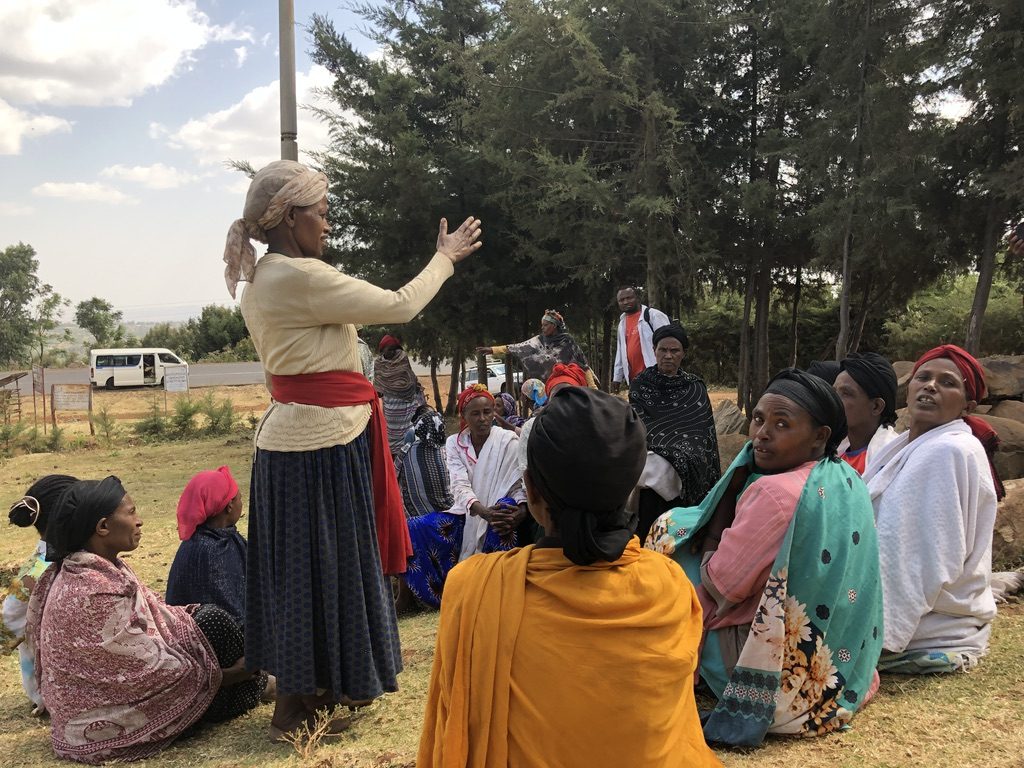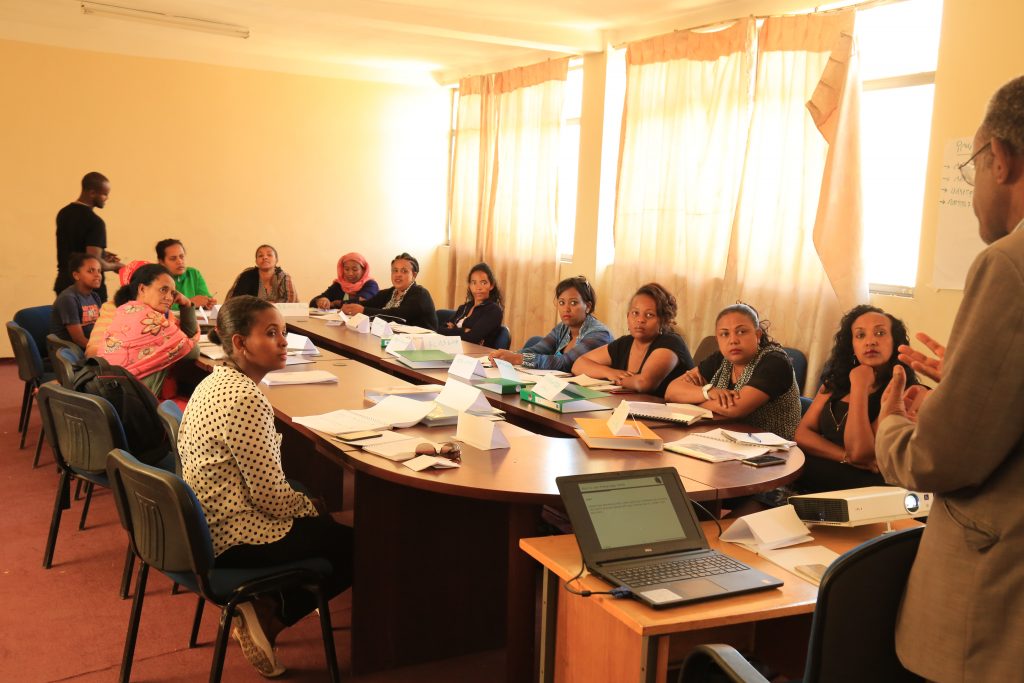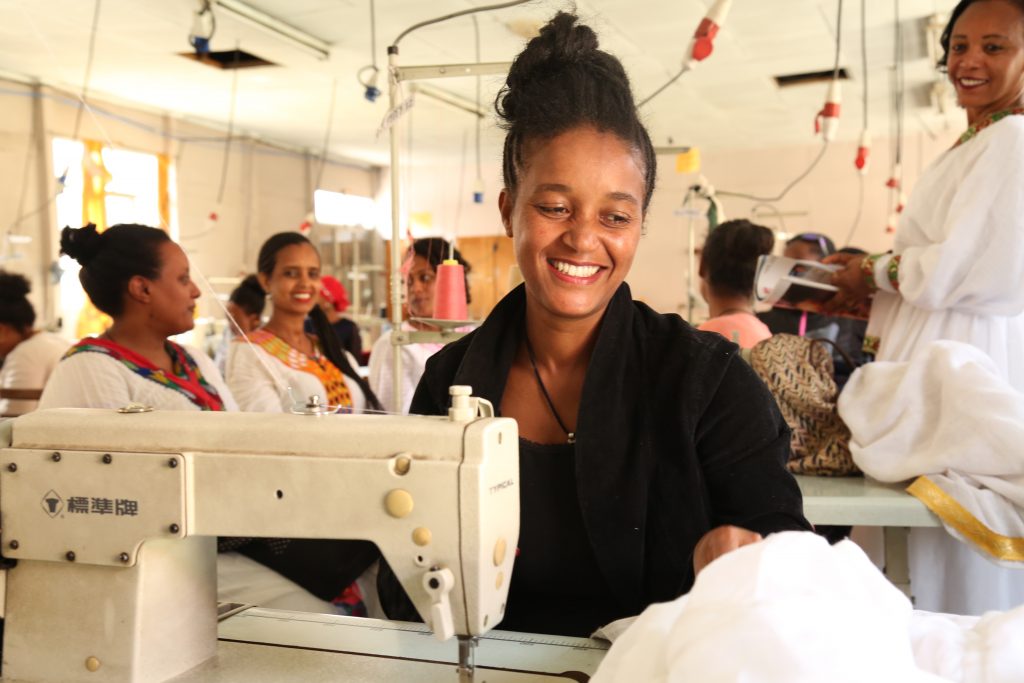Gender equality is a key component of sustainable development, and the Government of Ethiopia is explicitly committed to the achievement of this goal. The Constitution highlights the rights of women and the Women’s Policy of Ethiopia reiterates the Government’s commitment to gender equality. The Growth and Transformation Plan II (GTP II), for the period 2016-2020, gives priority to women and youth empowerment as a cross-cutting sector to improve equity in social services, strengthening their education, fighting against harmful traditional practices and gender-based violence.
The Italian Agency for Development Cooperation (AICS) is committed to sustain gender equality and women’s empowerment in all its sectors of intervention, in supporting the Ethiopian engagement for an inclusive and gender-balanced growth of the Country.
AICS Gender Sector aims to strengthen gender-sensitivity of all programs through technical support, development of specific projects to promote women’s empowerment and youth participation, and assurance of gender mainstreaming as cross-cutting instrument for development as well as resilience and emergency programs.
Our Initiatives
Women’s Economic Empowerment and Social integration (WEESI)
With a contribution of 600,000 Euros grant to support the Regional Bureau of Women, Children and Youth’s Affairs (BoWCYA) in the SNNP Region, the project is a pilot initiative of integrated empowerment for socially and economically vulnerable women in 4 areas (Woredas) of the Southern Nations, Nationalities and Peoples Region (SNNPR) and Arba Minch Correctional Institution, and for the promotion of gender mainstreaming at both national and regional levels. The ongoing project is strengthening the gender mainstreaming capacity of government authorities and other key actors at local level, building the entrepreneurial capacities and self-esteem of women of the target groups through the establishment of micro and small enterprises, sustaining student girls who refused harmful traditional practices (HTPs) in continuing their studies, raising awareness on gender issues within the communities involved, and reinforcing the gender policy dialogue at regional and community level to have a positive impact on the overall approach to gender issues. The target beneficiaries will benefit of actions aimed at promoting income-generating activities, access to financial services, development of individual skills, as well as support to school activities. Specifically for the Arba Minch Correctional Institution, AICS has financed the rehabilitation of the female section and the construction of new showers and latrines in order to improve the living conditions of women inmates. Moreover, a small component entrusted to an Italian NGO aims at strengthening the income generating activities through the creation of sustainable market linkages;
Women Entrepreneurship Development Program (WEDP)
The project aims at identifying and strengthening micro and small women’s-owned business in the leather sector in ten cities including Addis Ababa, supporting them to improve business productivity and competitiveness, strengthening the capacity to access credits and improving market linkages to scale up business and increase the potential for job creation. Women empowerment and environmental and social safeguard are key-topics of this project, which intends to prevent child labor and women abuse, promote environment protection and decent job with 15 million Euros as an aid credit for the World Bank credit line managed by the Development Bank of Ethiopia;
Economic and Social empowerment and Protection of Women and Girls from Harmful Traditional Practices (ESWEP)
AICS is committed to promote gender equality and women’s empowerment to ensure a sustainable, human, economic, social and inclusive growth through the recognition of women’s role. To this end, with a budget of 500,000 Euros, the project aims to empower economically and socially the most vulnerable Female Headed Households (FHHs) and protect women and girls in targeted areas from Harmful Traditional Practices (HTPs). The project will improve the livelihood of the FHHs through the provision of technical, financial, entrepreneurial and management trainings on Income Generating Activities (IGAs), establishment of a microcredit line through MFI, provision of BDS and life skill trainings; the awareness of primary and secondary school students on HTPs and Sexual Reproductive Health (SRH) through the provision of school material, sanitary kits, secret boxes and tutorial classes to support selected girls in 6 primary schools and 5 secondary schools, strengthening of girls’ forums/clubs and training of teachers on HTPs and SRH issues; knowledge and response of communities on HTPs and SRH through community conversations, training of law enforcement agents and Health Extension Workers (HEWs) and midwives on HTP case management and training of religious leaders and CBOs.


